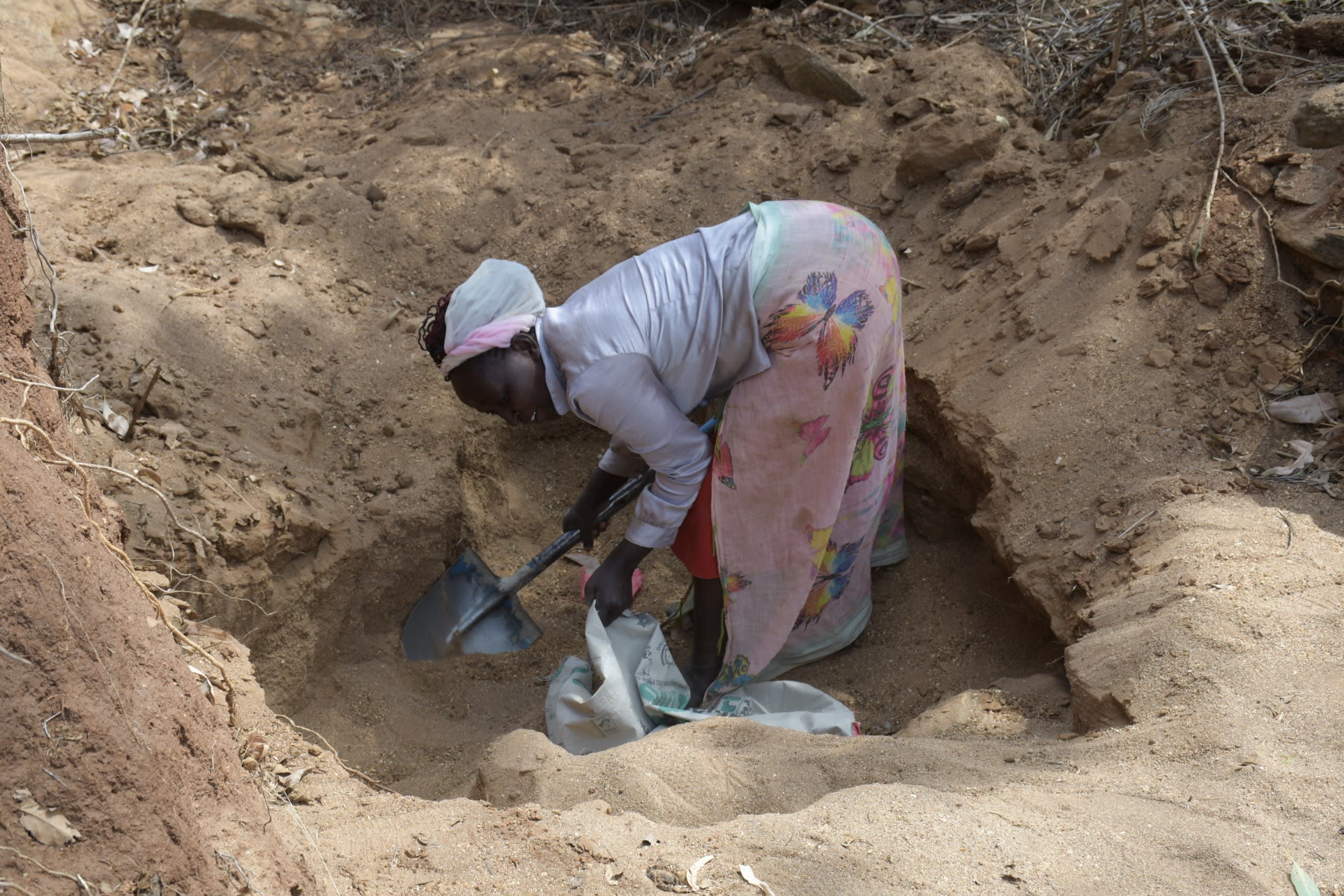The community of Ilalu has two sand dams with dug wells, but those living on the far edge of the community must journey for up to two hours to collect water.
"Walking to the shallow wells is challenging due to the long distance under the burning sun," said 34-year-old farmer Kavisu Kavindu.
Community members generally wake up by 6 a.m. to fetch water. During extreme drought periods, some people even travel to the shallow wells at night when water levels have had a chance to rise, but making that journey can be dangerous.
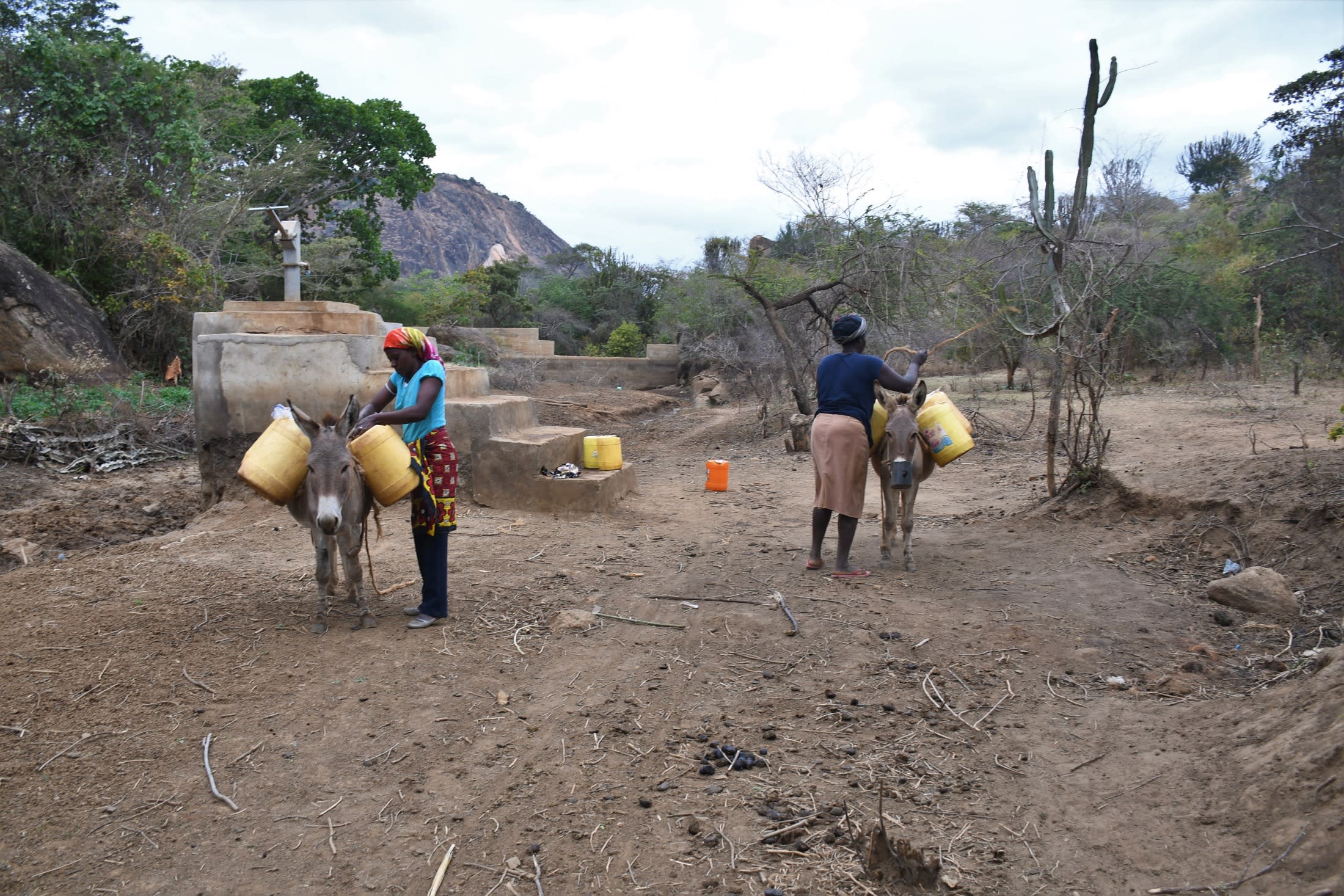
Regardless of when community members make the exhausting journey, even using donkeys like in the photo above, their water is rationed to only six 20-liter jerrycans per family to ensure that everyone can have at least some water.
"There is little water within the community, and cultivating vegetables and other crops for sale has been an uphill task," said Kavisu. "This negatively affects my level of income and ultimately my livelihood status. My health has also deteriorated because I spend most of my time and energy fetching water rather than focusing on farming."
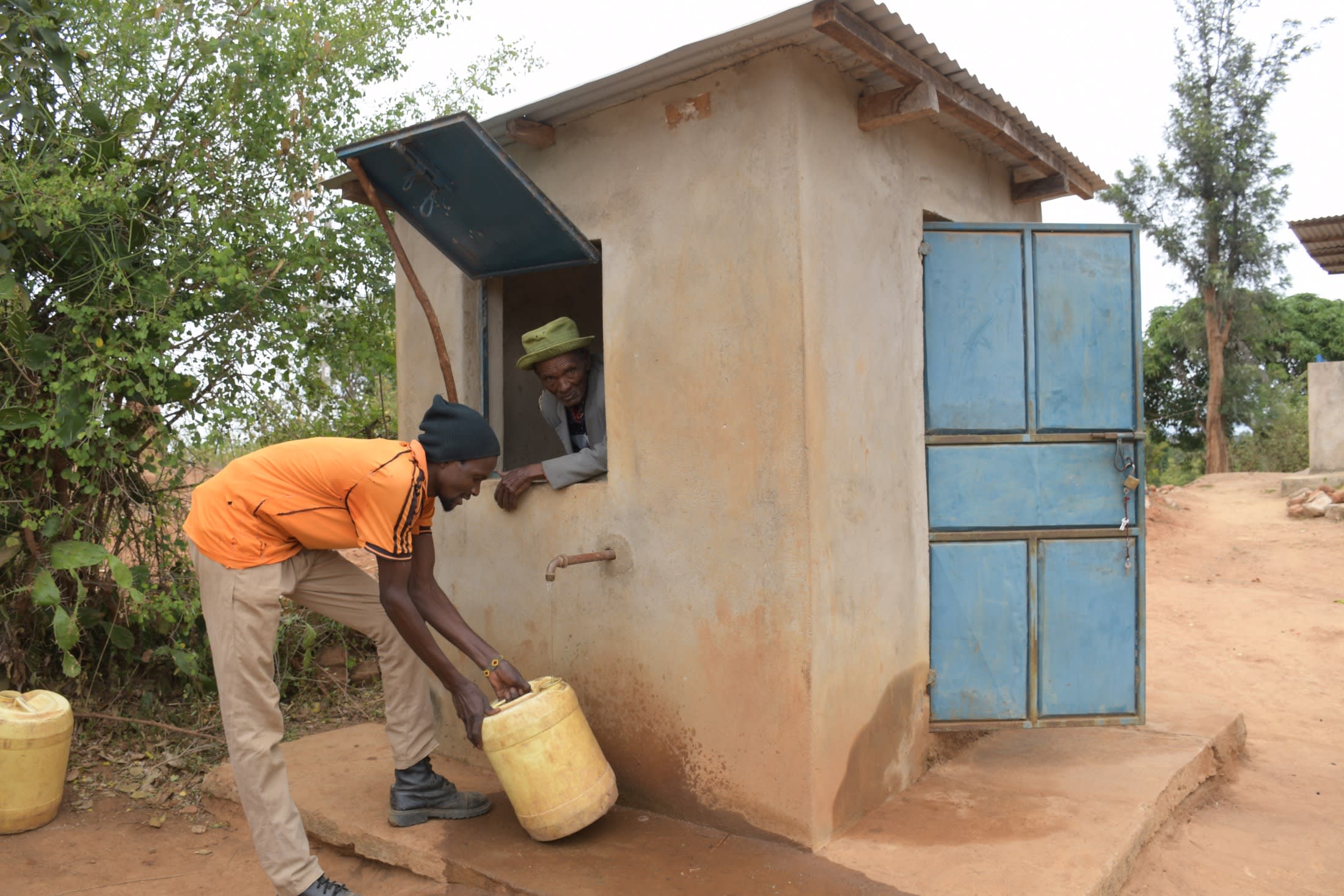
The alternative is a public stand-pipe (shown above) a kilometer away, which community members must pay to access but can't really afford.
"The purchase of water from the water kiosk also puts another hole in my pocket because it's costly and income from farm produce is almost negligible," said Kavisu (shown below).
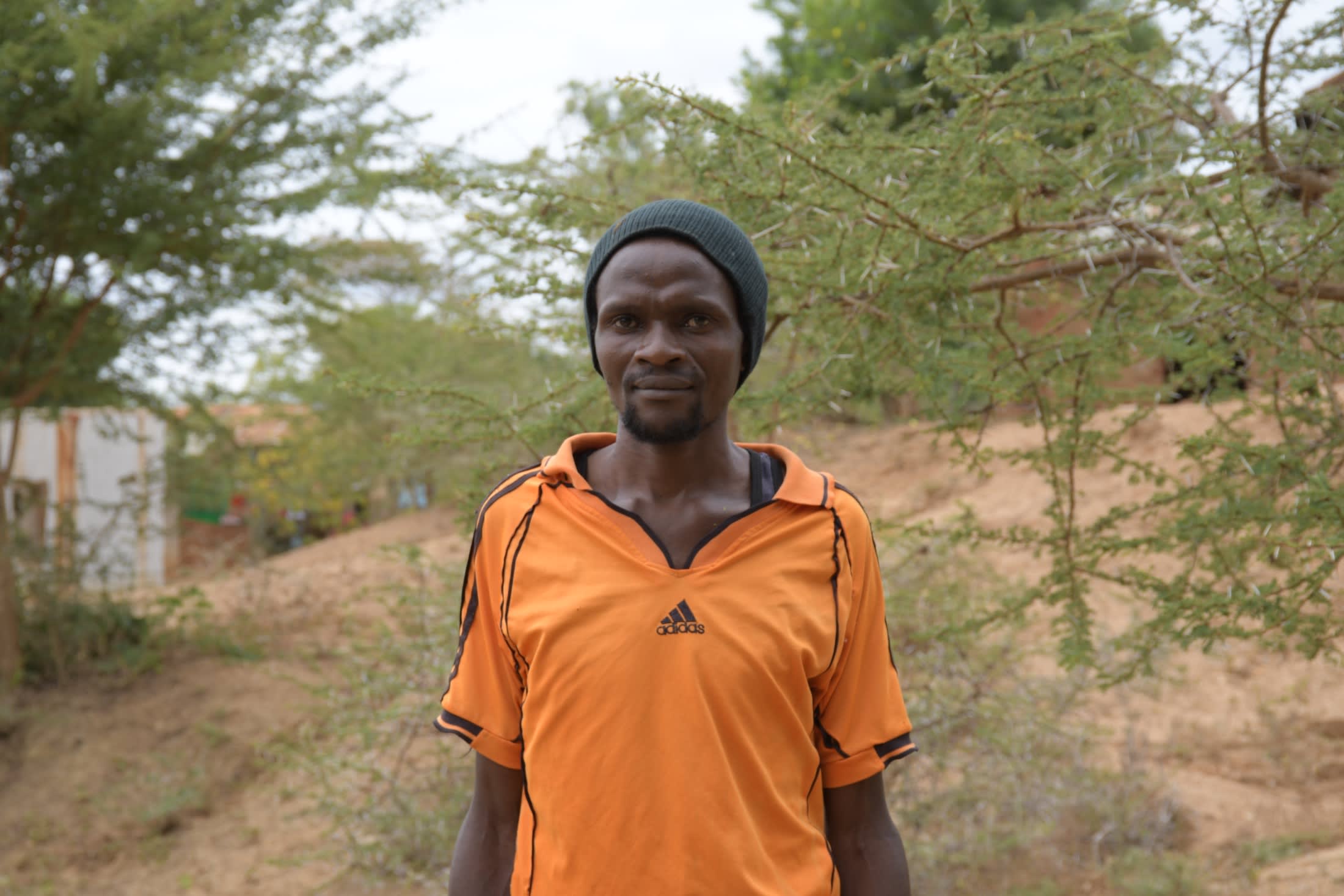
Having insufficient water negatively affects students' performance and the livelihoods of community members, whose primary source of income is farming.
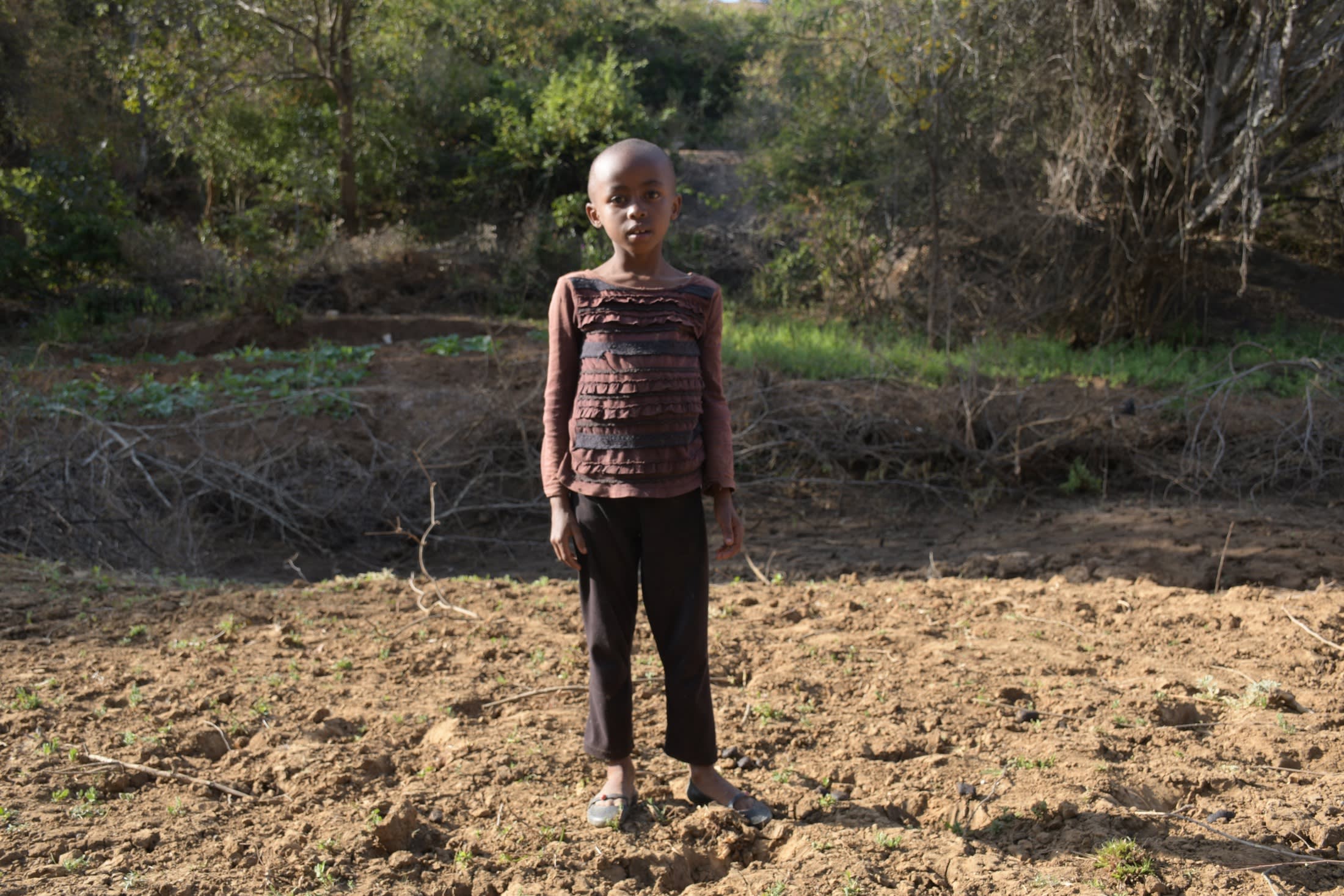
"I have to carry water to school from home every day, which is exhausting and affects my concentration in class," said eight-year-old Kitheka N. (shown above). "During the tough drought periods, I go to school on an empty stomach because of the lack of water to prepare meals or cultivate food crops. During the last term, I was often absent from school because there was no water to carry."
Implementing a third sand dam and shallow well will ensure people have a reliable water source nearby, reducing their long journeys and keeping their limited resources from being depleted. The saved funds can then be used on other expenses like seeds for farming, school fees for their children, and improved nutrition.
What We Can Do:
Our main entry point into the community is the Ilalu New Foundation Self-Help Group, which comprises households working together to address water and food scarcity in their region. These members will be our hands and feet in constructing water projects and spreading the message of good hygiene and sanitation to everyone.
Sand Dam
After the community picked the ideal spot, our technical team went in and proved the viability by finding a good foundation of bedrock. Now, our engineers are busy drawing up the blueprints.
We are unified with this community to address the water shortage. As more sand dams are built, the environment will continue to transform. As the sand dams mature and build up more sand, the water tables will rise. Along with this sand dam, a hand-dug well will be installed to give community members an easy, safe way to access that water.
Building this sand dam and the well in this community will help bring clean water closer to the many people living here.
Training
These community members currently do their best to practice good hygiene and sanitation, but their severe lack of water has significantly hindered reaching their fullest potential.
We will hold hygiene and sanitation training sessions with the Ilalu New Foundation Self-Help Group and other community members to teach essential hygiene practices and daily habits to establish at the personal, household, and community level. This training will help to ensure that participants have the knowledge they need to make the most out of their new water point as soon as the water is flowing.
One of the most important topics we plan to cover is handling, storage, and water treatment. Having a clean water source will be extremely helpful, but it is useless if water gets contaminated when it is consumed. We will also emphasize the importance of handwashing.
The community and we firmly believe that all of these components will work together to improve living standards here, which will help to unlock the potential for these community members to live better, healthier lives.
We typically work with self-help groups for 3 to 5 years on multiple water projects. We will conduct follow-up visits and refresher training during this period and remain in contact with the group after all of the projects are completed to support their efforts to improve sanitation and hygiene.

 Sand Dam
Sand Dam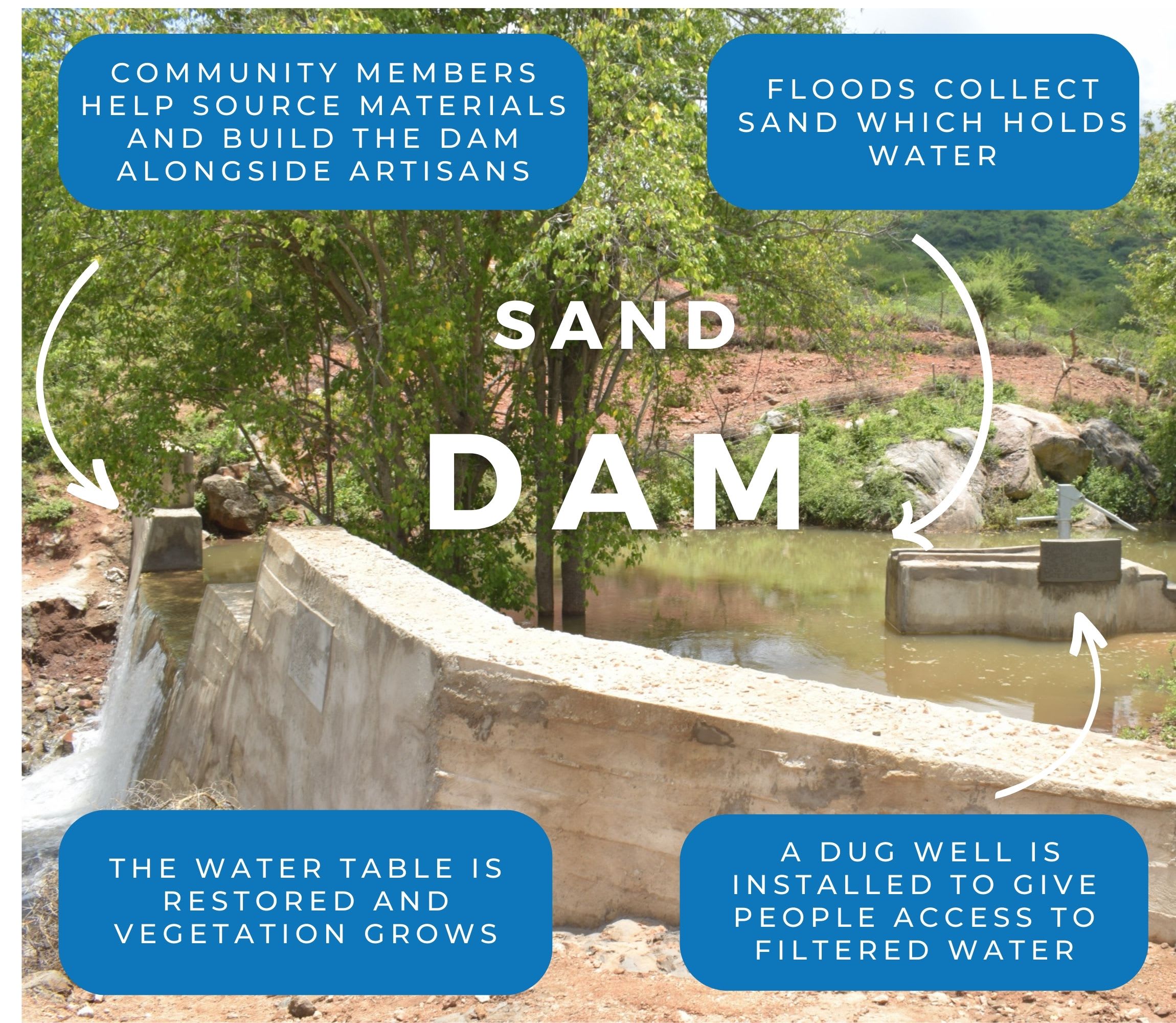
 Rehabilitation Project
Rehabilitation Project












